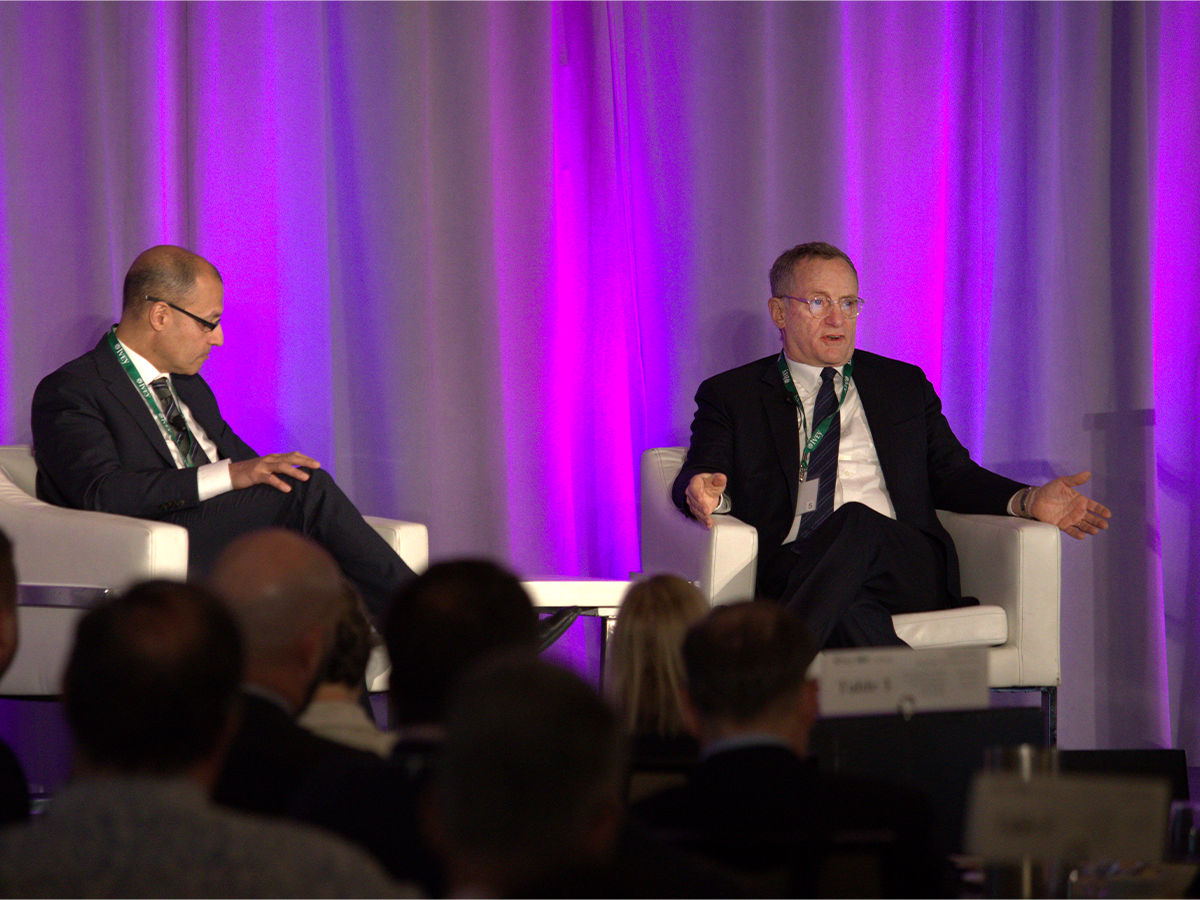Events
What Becomes an Investing Legend Most? Oaktree Capital’s Howard Marks shares his insights at the Ben Graham Centre for Value Investing Conference

“What Becomes a Legend Most” was one of the most influential advertising campaigns of the 20th century. Launched in 1968 by Blackglama, it featured a “who’s who” of pop culture legends like Marlene Dietrich, Cher, Judy Garland and others. In April, at the Ben Graham Centre’s Value Investing Conference in Toronto attendees were in the presence of another legend—Howard Marks, who began his illustrious career in 1969 and co-founded Oaktree Capital Management, the largest investor in distressed securities, in 1995. Here are some highlights from Marks’ keynote speech:
On Macro Forecasts…
You can’t model the economy, he told the audience. “Garbage in, garbage out. There are too many moving parts.” The enemy of knowledge is the illusion of knowledge, which is why Marks is “not enamoured with macro forecasts.” He quoted American economist John K. Galbraith on the topic: “There are two kinds of forecasters-those who don’t know and those who don’t know they don’t know.” Micro is knowable; macro is unknowable. He quoted Warren Buffett who advised investors to focus on what is knowable and what is important.
Marks’ approach is to make investment decisions based on earnings, not macro forecasts. On a practical level, if necessary, he recommended using a neutral forecast on the macro environment using an average. For example, historically, the U.S. economy has had an average rate of inflation of 2%. Some years it was 1%, others 3%, so use 2%. Oaktree never bets on forecasts, he added. “Where are all the rich macro forecasters?”
“You may not be able to change your biases, but you can mitigate them.”
Don’t look to the Fed for direction, he cautioned. “They have 200-400 PhD economists on the payroll [who] are not hired on their track records,” he said. “Forecasters are great practitioners of cognitive dissonance which allows them to hold contrary views.”
On What Really Matters…
Marks told the audience this topic was the subject of his favourite memo, yet he got absolutely no response to it. What doesn’t matter, he said, are the following: inflation, interest rates, and recessions.
“If people understood how unpredictable the world is, they would never get out of bed!” All that matters is 1) to invest in a company that will become more valuable over time and, 2) in debt investing, ensure the company will pay the interest and the principal. “Short term events should not matter, likewise short-term trading,” he added. “Trading on short-term events such as volatility can’t be successful.” He quoted Warren Buffet on the topic of volatility: “‘Would you rather have a lumpy 15% or a smooth 12%?’” Marks said investors are afraid of volatility for psychological, not financial reasons.
“Concern with volatility is overdone.”
On Being in a Sea Change…
We might be in a 3rd sea change, he said. A sea change is a fundamental change in the environment where everything is different—attitudes, causal environment, cyclical fluctuations. “If you can figure out where you are in the change, you can invest successfully,” he said. “After the longest recovery in history beginning in 2009 when the Fed’s Fund Rate was zero and QE [quantitative easing] was flooding the economy with liquidity, it was easy to raise money and it was a great environment for asset owners with low discount rates inflating asset prices. The low cost of capital was also good for borrowers and businesses.
“Know your environment.”
“And, if you owned assets with borrowed funds, like in private equity, it was like going through the airport on a moving walkway—your progress was the sum of your walking speed, plus the walkway’s speed. You might have thought of yourself as a ‘fast walker’ because you were not paying attention to the environment. People made a lot of money because of the environment. Now interest rates are higher, and we have QT [quantitative tightening], not QE: buyers are not so eager, and holders are not so complacent. This is a major sea change and one we are likely to be in for some time,” he added. “The next 5-10 years will be a less easy period in what works and what doesn’t.”

AI: The next frontier of exponential growth
“The greatest shortcoming of the human race is man’s inability to understand the exponential function.” – Allen Bartlett According to ancient legend, chess was invented by Grand Vizier Sissa Ben Dahir around 6th century AD […]

Active Management: Taking Advantage of Passive Instruments. Again.
At Pender we practice active management and are fundamental value investors who base our investment process on taking advantage of market inefficiencies, such as when a company becomes significantly mispriced in comparison to what the […]

A Better Way in Fixed Income
There is no longer an “easy button” in fixed income whereby investors can earn relatively high real returns from invested instruments guaranteed by the government. While most investors still construct their portfolio with a mix […]



